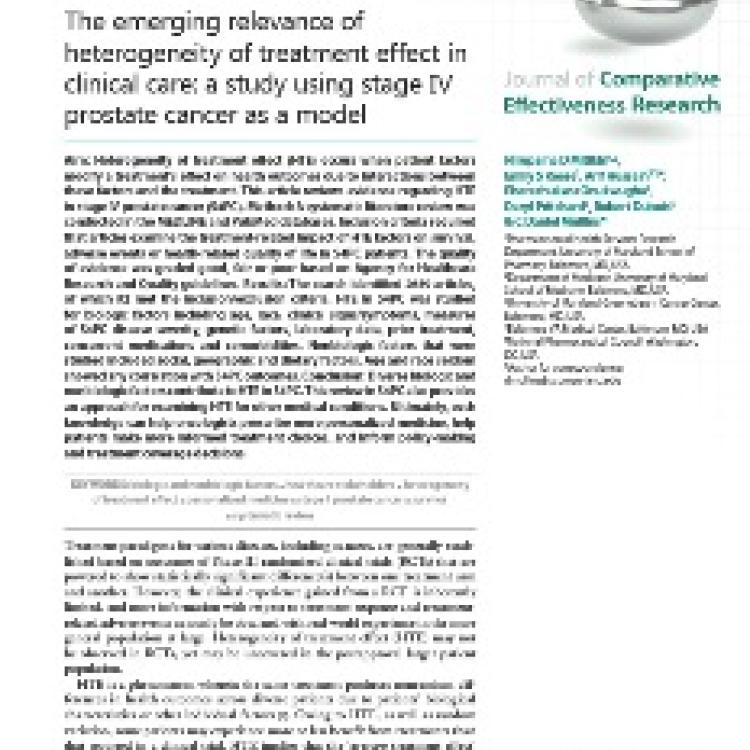Authors: Mitikiri, ND; Reese, ES; Hussain, A; Onukwugha, E; Pritchard, D; Dubois, RW; Mullins, CD.
Publication: Journal of Comparative Effectiveness Research, November 2013
Summary:
Although researchers and health care providers widely recognize that individuals with stage IV prostate cancer react differently to treatments, the factors that impact treatment outcomes, including biological factors such as race, age, or co-morbidities, and nonbiological factors such as geography, diet or social issues, are not well understood or studied.
Background:
As the study authors explained, “individual treatment effects can make it challenging for the patient and the provider to select appropriate patient-centered treatments that provide maximum clinical benefit to specific patients and subgroups.”
The study authors conducted a systematic literature review, focusing on articles that examined the treatment-related impact of individual treatment effects on survival, adverse events or health-related quality of life in stage IV prostate cancer patients. They chose to study stage IV prostate cancer because these patients experience varying outcomes and side effects from similar treatment approaches. The authors found that “factors related to the clinical signs/symptoms, laboratory tests and disease severity have been extensively studied,” but “few articles studied the role of nonbiologic factors in treatment outcomes.”
Highlights:
The Journal of Comparative Effectiveness Research article included several key findings related not only to prostate cancer treatment, but also to broader treatment, coverage and reimbursement decisions:
- The review of existing literature demonstrated that there is a need for more well-defined studies that evaluate the role of individual patient differences in specific disease outcomes.
- The study also highlights the many challenges faced by health care decision-makers because of the lack of evidence regarding individual treatment effects. To address these challenges, the study authors suggest that individual treatment effects should be taken into account:
- by physicians, when applying treatment decisions to diverse populations;
- by researchers, when designing clinical trials and interpreting the results;
- by regulatory bodies that approve drugs and might not recognize the positive or negative effects on specific populations; and
- by payers, to ensure that a wide range of treatment options are available to patients, especially for conditions with diverse treatment effects.
